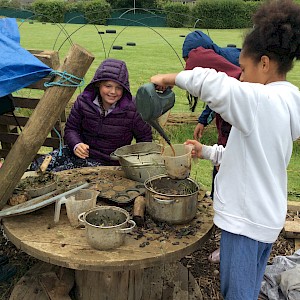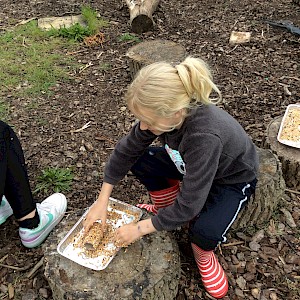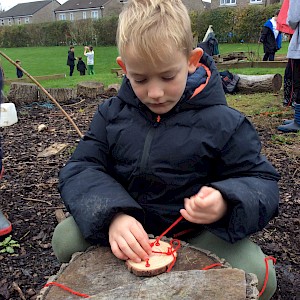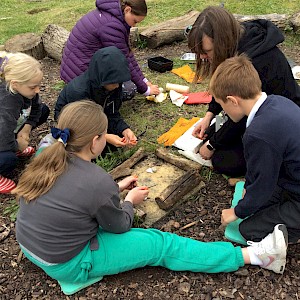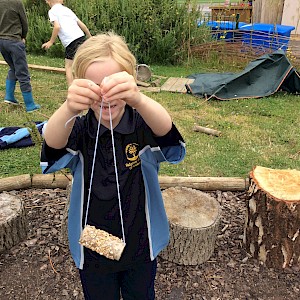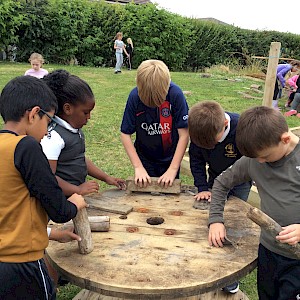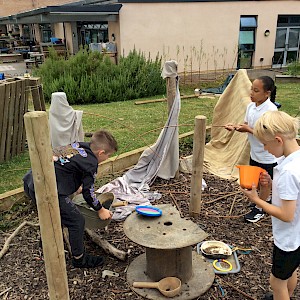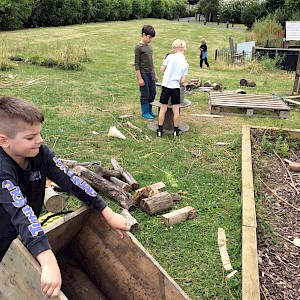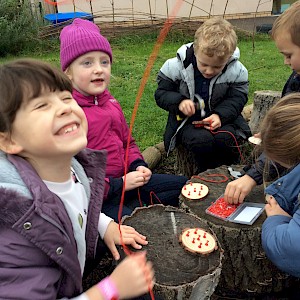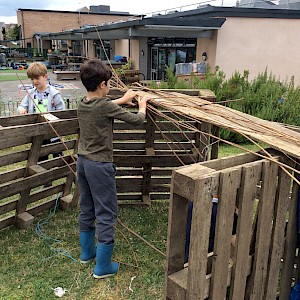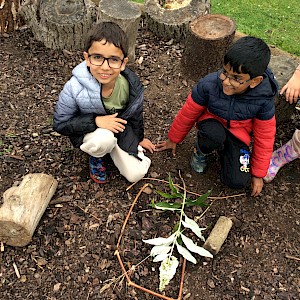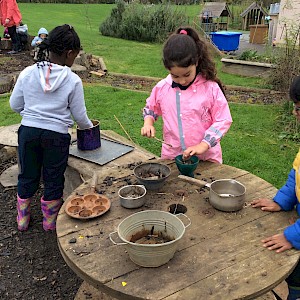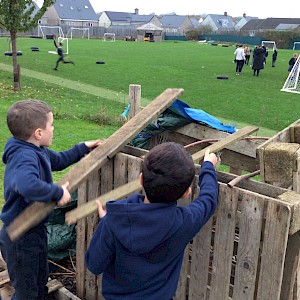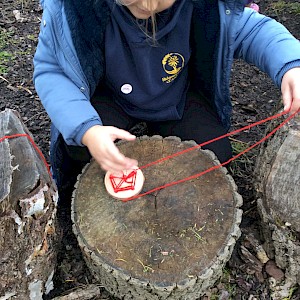Forest School Intent
The ethos of Forest School is based on a respect for children and their capacity to initiate, investigate and maintain curiosity in the world around them. It believes in a child's right to play; the right to access the outdoors; the right to experience risk in a controlled way in the natural world along with the right to develop their emotional intelligence through social interaction, building a resilience to enable creative engagement with their peers and their potential.
Forest School is an inspirational process that offers all learners regular opportunities to achieve and develop confidence and self-esteem through hands-on learning experiences in a woodland or natural environment with trees. Children who struggle learning indoors are often able to develop new ways of learning and coping with the world. Forest School is based on the process of learning - more on the 'how' than the 'what'. Forest School practice embraces collaborative unplanned, unexpected and ultimately unlimited learning. Children are encouraged to direct their own learning - this is often inspired by the Forest School leader either through stimulating play in the outdoors or through 'scaffolding' a child's learning, but mostly through simply observing how children are in the outdoors. The most important thing is to encourage the natural curiosity present in children and to enable them to open their eyes and experience the wonders of the world around them.
Our Forest School encourages children to:
- Develop personal and social skills
- Work through practical problems and challenges
- Use tools to create, build or manage
- Discover how they learn best
- Pursue knowledge that interests them
- Learn how to manage failures
- Build confidence in decision making and evaluating risk
- Develop practical skills
- Understand the benefits of a balanced and healthy lifestyle
- Explore connections between humans, wildlife and the earth
- Regularly experience achievement and success
- Reflect on learning and experiences
- Develop their language and communication skills
- Improve physical motor skills
- Become more motivated
- Improve their concentration skills
Forest School Implementation
Activities for Forest Schools are diverse and numerous, we are trying to create independent learners who are inspired to try out their own ideas, explore their own interests and to attempt new ideas.
Some activities might include:
- Shelter building
- Fire lighting and cooking on an open fire
- Using a Kelly Kettle
- Tool use
- Studying wildlife
- Playing team and group games
- Sensory activities
- Rope and string work, tying knots
- Art and sculpture work
- Woodland and traditional craft
- Woodland management
- Developing stories and drama, and meeting imaginary characters
- Fire lighting/cooking
- Clothing
No person will be permitted to go to Forest School without appropriate clothing that will protect them from extremes of heat or cold, keep them covered to reduce the likelihood of cuts and scrapes, that fits appropriately for comfort, and that meets any religious requirements.
Children and parents are encouraged to think about the usefulness of their clothing for outdoor activities, and to be aware they are likely to take some of our mud home with them after a session. In the woodland it can often be cooler than expected under the shade of the trees.
Clothing list:
- Waterproof trousers
- Waterproof coat, with a hood.
- Long sleeved top
- Full length trousers
- Warm, waterproof boots (wellies can be very cold during the winter)
- Warm socks, and a spare pair
- Gloves and woolly hat – cold weather
- Sun hat and sun cream: that fits well to ensure good visibility– sunny weather
We work on the principle that “there is no such thing as bad weather, only bad clothing”. Before each session the forest school leader must carry out a risk assessment of the forest school site. The forest school leader must identify and remove/reduce and risks that are found during the risk assessment.
To ensure high standards of teaching and learning in the forest classroom, we implement a curriculum that is progressive throughout the whole school. Forest school teaching follows a whole school long term plan which focuses on outdoor skills and links to their learning in other subjects. At Ridgeway Farm CE Academy, we ensure that forest school has importance within the timetable.
Forest School Impact
Forest school lessons should make learning more relevant to their lives in the community and wider world. We encourage children to be responsible for and respect the local community and environment giving them a sense of belonging and ownership of the place in which they live. We explore the uses of the local area, integrating subjects so that meaningful activities can be planned and delivered effectively and regularly.
We measure the impact of our curriculum through the following methods:
- Images and videos of the children’s practical learning.
- Interviewing the pupils about their learning (pupil voice).
